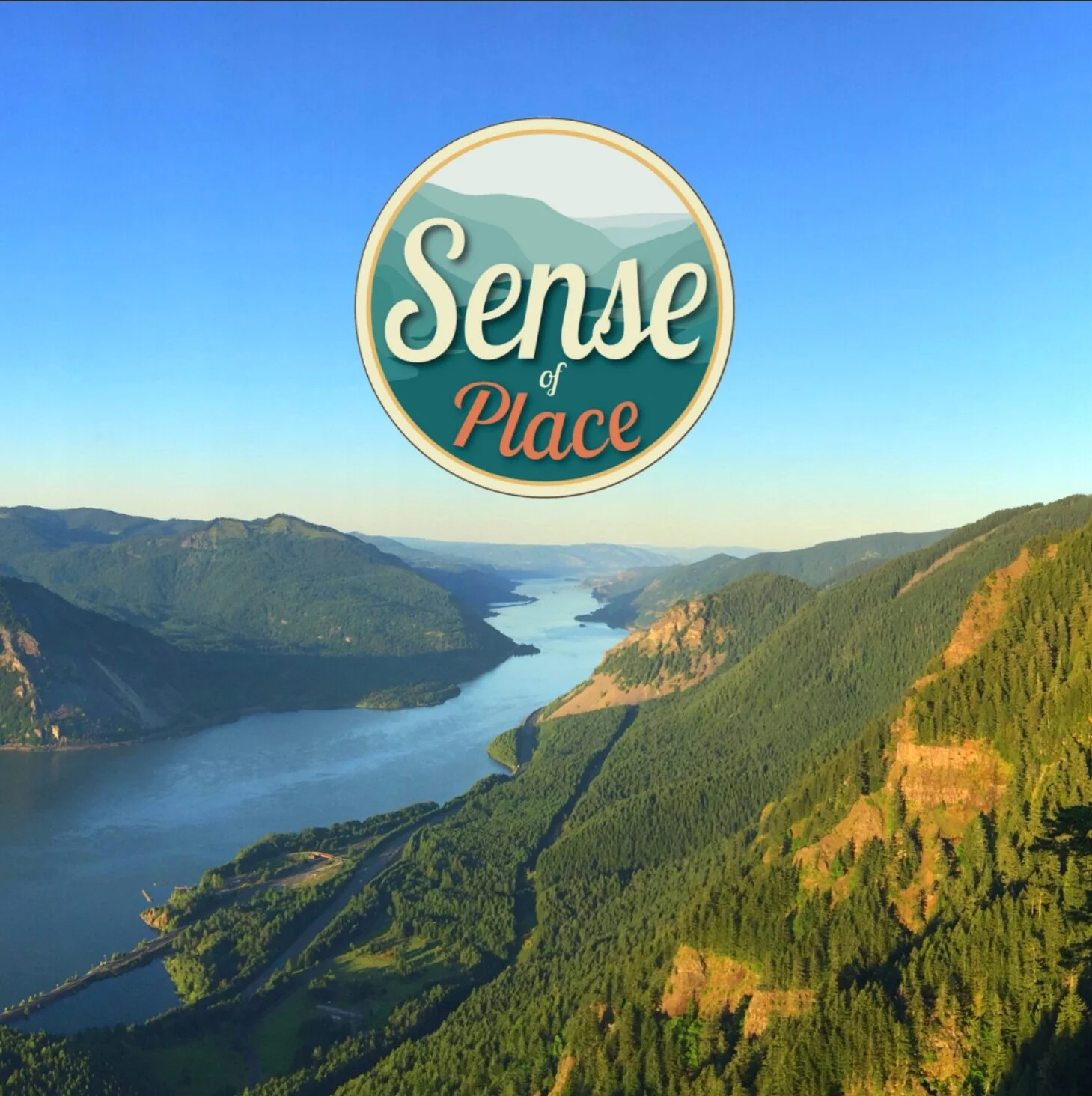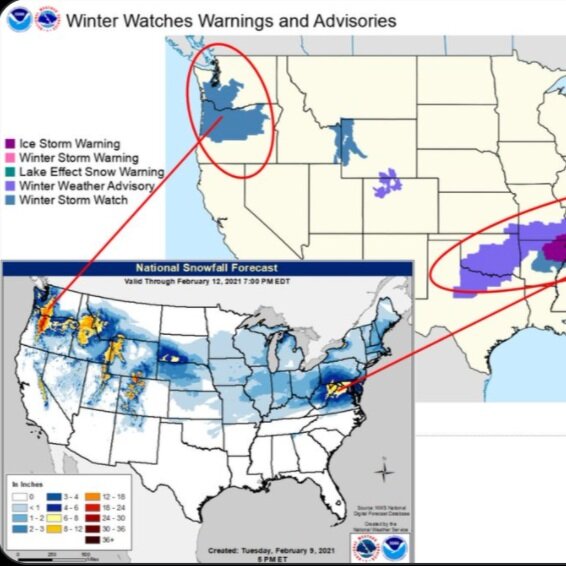Black Pioneers on the Oregon Trail, Sense of Place Event
Join Mt. Adams Institute for a virtual Sense of Place event, Black Pioneers on the Oregon Trail, February 17, 2021 at 7 p.m. on Zoom featuring historian Zachary Stocks.
The event will feature a group of pioneers that we still know very little about - the Black Americans who traveled the Oregon Trail. What might it have been like to come to Oregon, the only state in the union to paradoxically declare itself a free state, while also having Black exclusion laws on the books? And who are some of the Black pioneers that came to the Pacific Northwest and forever changed this place, its people, and history?
CCC News reached out to Zachary Stocks to bring you a teaser of the event that’s coming soon to a Zoom near you.
Pictured: Zachary Stocks, the new Executive Director of Oregon Black Pioneers, the state's African American Historical Society.
Interview with Zachary Stocks
Zachary Stocks is a public historian, educator, and museum professional from Astoria. Zachary has interpreted the experiences of people of African descent in the Pacific Northwest for over 5 years. He is a former staff member of the Northwest African American Museum and Historical Seaport, a volunteer interpretive ranger at Lewis and Clark National Historical Park, and is the new Executive Director of Oregon Black Pioneers, the state's African American Historical Society.
What was the biggest hurdle faced by black pioneers on the Oregon trail?
Blacks faced all the same dangers as white overlanders traveling across the continent. The most common causes of death for the ~10% of Oregon Trail migrants who died were things like gunshots, drowning, and illness. We know that Black men were often tasked with driving the ox carts to Oregon, often in exchange for their freedom upon arrival. With that in mind, Black pioneers may have been disproportionately at risk to injuries from livestock or overturned wagons, but we do not have examples of such accidents to point to specifically.
Why don't we know about more black pioneers?
During the years of the Oregon Trail, literacy was not universal for Americans. Far fewer people of African descent had earned an education and were taught to read and write. Because of this, there are virtually no writing by Black migrants during their Oregon Trail journey. We only find stories of the Black pioneers from writing by white authors, and because they did not often write about their Black slaves or servants, first and secondhand accounts of the Black experience on the Oregon Trail are largely missing from the historical record.
Are there any famous black pioneers?
Not really. Oregon's African American story doesn't feature many nationally or internationally known historical figures. That does not mean that their stories are not worth telling; instead it means their hard work made the greatest difference to their families and their communities. Many of them were enslaved, and many more are anonymous to us, but we recognize and honor their sacrifices any way. Their dignity and pursuit of a better life laid the groundwork for future generations of African Americans who willingly made Oregon their home.
What was the historical context in which Black Pioneers traveled the Oregon Trail?
While white travelers on the Oregon Trail came from land, people of African descent traveled to Oregon Trail for freedom. Many Blacks who had been enslaved in the eastern states were offered their freedom in exchange for helping their families travel across the continent. They cared for white children (as well as their own), drove the wagons and tended to livestock, and cared for the elderly, sick, and pregnant. Oregon represented a chance to live and work for themselves and participate freely in society with paid labor, freedom of movement, and control over their own destiny. Of the free Blacks who came on the Oregon Trail, many simply wanted to stay close to the white household whom they worked for, as they largely lived as a combined family. A rare handful of other free Blacks came to try and establish their own farms.
What did they find when they got to Oregon?
Depending on the year, Oregon barred Blacks from coming to, and settling in, Oregon. The first Oregon Black Exclusion Law of 1844 made it clear that while slavery was forbidden in Oregon, emancipated Blacks were not welcome to remain in Oregon after being freed. The Black migrants on the Oregon Trail nearly all came during the years between the Black Exclusions laws' repeals and the passage of subsequent discimination laws, offering Blacks travelers abrief windows when they would be permitted to settle in the Territory. But the constant changes in the law was confusing, and made it less enticing for Blacks to come to Oregon for fear that they might be forced to leave after arriving.
What do you hope people take away from the Sense of Place Lecture on Black Pioneers on the Oregon Trail?
My hope is that people will recognize that the narrative of our state's history is one that involves the contributions of many diverse peoples, even though we typically only hear about the white pioneers. Black people have been coming to Oregon since the 1500s and it is important that we recognize that their contributions have made a difference in shaping what Oregon is today.
I love reminding people that while Oregon is one of America's whitest states today, history reveals that in Oregon's earliest days it was a place of great diversity --Indigenous peoples who've been here since time immemorial, Hawaiians sailors, Iroquioian and mixed race French-Indigenous peoples who explored Oregon via Canada, Chinese laborers who helped build the railroads, and yes, Black people who participated in every one of Oregon's traditional industries.
What resources would you recommend to people who want to learn more about black history/black pioneers in Oregon?
Please visit our website at oregonblackpioneers.org where you can explore our online exhibitions and learn more about the people and stories that shaped the Black Oregonian experience.
Want to know more? Join Mt. Adams Institute and historian Zachary Stocks on Wednesday February 17th, 2021 online via zoom.
Mt. Adams Institute is a non-profit based out of Trout Lake, WA with programs that strengthen the connection between people and the natural world through education, service, career development, and research.
Event Details:
Sense of Place
When - Wednesday, February 17, 2021.
Where - Online via Zoom.
Cost - Free, with a $10 suggested donation to support the program.
For more information and to register to attend please go to https://zoom.us/webinar/register/WN_r6mvywTmStufc0c1xR8rxw
Looking for more ways to Celebrate Black History Month?
Check out our complete list.










